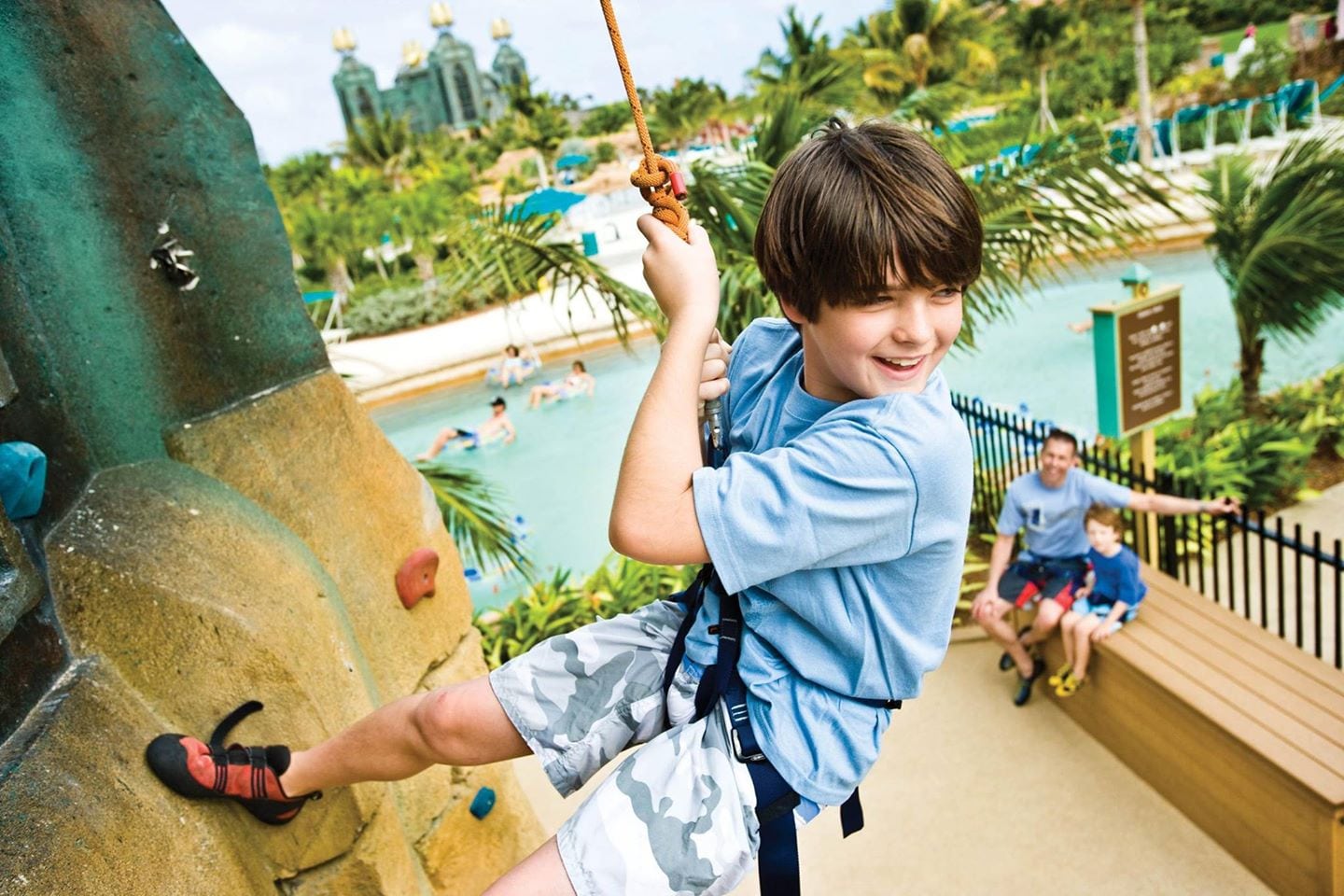Skift Take
Multigenerational travel isn't going anywhere — except up, and fast. What started to take shape in the 1990s has given way to one of most talked-about travel trends, and many hotels are marketing to, and making changes, to connect this growing traveler base.
The words “multigenerational” and “millennial” have at least two things in common: They both begin with the letter M, and they are both key in defining the travel industry.
Whereas the rise of millennials is dictating how travel will be transformed in the coming years, the multigenerational crowd is more “a here and now” group, showing continued growth with roots that date to the 1990s when industry players first noticed the travel patterns and habits of what was then a niche market.
However, hotels trying to come up with ways to convert the group’s needs into experiences that can be shared across generations is a more recent development.
AFAR Editor Jen Murphy cites families seizing holiday time as a means of bonding, as well as the excitement of watching kids and grandkids immerse themselves in other cultures have been two of the most influential factors pushing the trend.
“A lot of people are looking for hotels offering something that is new and something that they are going to take home and remember,” Murphy says.
The industry has so far responded well to multigenerational travel, spearheading creative ways to engage with, capture the attention of, and provide for parties of three or more generations, Murphy says.
“I think, too, that more hotels are catering to longer-term stays and giving people the perks that you would get from renting an apartment,” she adds, citing The Nantucket Hotel in Nantucket, Massachusetts among the more impressive multigenerational properties because of its flexible layout and range of accommodations, including one-to four-bedroom suites along with cottages that featuring kitchenettes, living and dining areas.
Activities and design are just two parts of the equation for capitalizing on multigenerational travel, with technology carving out another inlet.
At Acqualina Resort and Spa On The Beach in Sunny Isles Beach, Florida, CEO Deborah Yager Fleming estimates that multigenerational stays account for approximately 15 percent of the resort’s current business. When the resort began drawing up plans to renovate its rooms and suites, which were completed earlier this year, the topic of multigenerational travel would always enter the conversation.
As a result, Yager Fleming says the property decided to launch an app.
“Once our newly designed rooms and suites were completed, I wanted to let multi-gen travelers know how our floor plans are laid out to accommodate all of their requests from bedding preferences to living areas for the family to enjoy,” she says. “There are many special features that were not obvious to our guests. I also wanted to let them know about some of the unique activities like beach Olympics for the whole family to enjoy.”
The app, which is available for free in the iTunes, features five categories that families can use for searching and bookings: family accommodation; on-property activities; hotel restaurants; excursions, and featured recommendations, each of which is rife with information gleaned from staff and guests regarding the hotel and local attractions.
Like Aqualina, many hotels have long been family friendly properties. With its towering waterslides, dolphin and stingray encounters, watersports, teen-night clubs, golf courses, spas, and dining scene, Atlantis, Paradise Island Resort is, by design, a property that appeals to multigenerational families, says Karen Cruitt, vice president of leisure sales at Atlantis, Paradise Island.
“It gives us an advantage over other properties that don’t have that kind of breadth of product to offer, and that is the key — the breadth of the product,” Cruitt says.
Though Atlantis is a playground for the young, seniors and everyone in between, the multigenerational trend spurred new offerings.
“From an entertainment standpoint….we found that entire families like to go and enjoy our magic shows, and in the past we’ve had resident acts,” Cruitt says. “This was the first year we had Rob Lake as the magician, and it is to a degree a response to appeal to and provide more entertainment for families and extended families…so we decided to extend to next summer because of the popularity.”
Lake wasn’t Atlantis’ only new act. The property also launched the Celebrations section of its website two years ago, which Cruitt says was formed specifically to address the demand for special events such as anniversaries.
With opportunities come challenges, and the multigenerational market has its share of hurdles. Yager Fleming says that fads can pose an obstacle, especially with regard to the tweens and teens.
“They keep getting older,” she says. “And what is popular today is not so popular tomorrow.”
Cruitt says that increasing number of competitors shaking up the market is something many properties need to overcome to build and maintain a presence in multigenerational travel.
“It isn’t a matter of needing to build momentum,” Cruitt says. “I feel that— from the industry talk in trends — many hotels are clamoring for the space, and it is highly competitive. Many hotels are trying to find ways to engage, and there is a lot of aggressive competition in terms for the amenities the hotels will offer to close their end of that market.”
Have a confidential tip for Skift? Get in touch
Tags: family travel, hotels, multigenerational travel
Photo credit: Atlantis Paradise Island Resort has long been a family friendly resort. Atlantis
